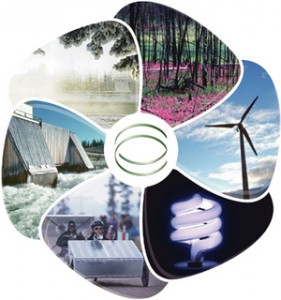Search Results for Tag: UN
Round Table of Climate Talks in Berlin

The latest round of climate talks has just kicked off in Berlin today, and it’s expected to lay the groundwork for the UN summit in Durban, South Africa at the end of the year. Around 35 countries are attending the meetings in Berlin, and the hope is that world leaders can set the course to some sort of binding climate agreement by the end of the year.
But US and European officials have already admitted that won’t be possible this year. While everyone believes a legally-binding plan is crucial, nobody can agree on what it should look like.
What do you think of international climate talks? Are they making good progress, or should world leaders be doing more?
Decreasing Chance of limiting the global increase in temperature to 2ºC

(Photo: CC/Library of Congress)
Bad news for climate-savers: According to the latest estimates by the International Energy Agency (IEA), energy-related carbon-dioxide (CO2) emissions were the highest ever meted in history. After a dip in 2009, that was caused by the global financial crisis, the emissions have climbed to a record of 30.6 Gigatonnes (Gt) in 2010. Thats a jump of 5% from the previous record year in 2008, when levels reached 29.3 Gt, the IEA claims. In addition, the IEA has estimated that 80% of projected emissions from the power sector in 2020 are already locked in, as they will come from power plants that are currently in place or under construction today.
During the latest UN climate change talks in Cancun in 2010 global leaders actually agreed to a target of limiting temperature increase to 2°Ct. To achieve this goal, the long-term concentration of greenhouse gases in the atmosphere must be strictly limited.
Saving Green Technology

Recycling has become part of everyday life in many parts of the world, but that usually means recycling things like plastics, glass and paper. We often forget to recycle valuable materials that we actually really need, like metals. A new report from the UN says less than one third of the earth’s metals have a recycling rate more than 50%.
That creates a big–and ironic–problem: the green technology we want to invest in for the future depends on those materials, so if we don’t do a better job recycling them, we might not have enough to produce the clean energy we want. The metals used in semi-conductors, LED lights, hybrid car batteries or magnets in wind turbines are all precious materials that are disappearing fast.
The message from the European Environment Agency is clear: improve the recycling rates. So how can we do a better job recycling important metals? Tell us what you think!
Renewable Future
The UN’s Intergovernmental Panel on Climate Change (IPCC) came out with a report recently that said renewable energy could make up 77% of the entire world’s energy needs by the year 2050. Yes, 77%! If that happened, we would slash one-third of the world’s greenhouse gas emissions and hold global temperatures under 2 degrees celsius.
The study included a series of renewable energy forms that could contribute to a very green future: solar, hydropower, wind, geothermal, and bioenergy. So what’s the catch? Well, of course, it all depends on politics and policy. According to the study, each country has to fight political obstacles and complications to make sure environmentalism is a top priority.
What are the obstacles and complications in your country that are preventing good climate policy?
2011 – International Year of Forests
2011 is the International Year of Forests, declared by the United Nations. We would like to suggest the project's website to you and a very interesting youtube channel that the project has launched.
The promotion of 2011 as a special year will show people's actions to sustainably manage the world’s forests, the UN says. It is also meant to raise awareness of sustainable management, conservation and development of all types of forests. As we have seen in some of our GLOBAL IDEAS reports this year, forests do have a key role in global sustainable development. According to the World Bank, more than 1.6 billion people depend on forests for their livelihoods. The UN’s Food and Agriculture Organization (FAO) estimates that every year 130,000 km2 of the world's forests are lost due to deforestation. Have a look at their channel, here's a glimpse:









Feedback